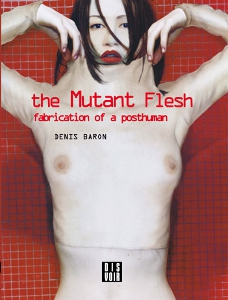This study on the fabrication of Posthumanity questions us on the limits of the human, its boundaries and its possibilities in our “biotech” era. It examines the fundamental distinction between natural and artificial, nature and technology, human and machine, body and flesh.
In recent years, new technologies have generated a cultural and cognitive revolution that has changed our relationship with the world. That theme of the mutant body undermines more than it appears our definition of human identity, more so for today technologies touch at the essence of man and his future by interfering with the living. For us, the living beings of yesterday still present in that new fabric of tomorrow's world, our story of human kind as a biologic genre no longer allows us to think the world in its present state. Using various means, artists are questioning with irony and determination that vertigo of a self-discipline that makes the body an object to reconfigure again and again. From the declination of a body in disuse to its reconfiguration as flesh, they open up a reflection to counteract the ancestral fears of a world in mutation, and to reveal not its lacks, but its potentialities. The Mutant Flesh: Fabrication of a Posthuman shows that in order to think today, one needs to know how to conjugate the power of the imaginary and to question art as a laboratory where a reconfiguration of the tangible is created in order to perceive that something belonging to human “nature” is mutating.
Denis Baron studied cinema and aesthetics in France. His research focuses on the role of the human body in counterculture and contemporary art.

